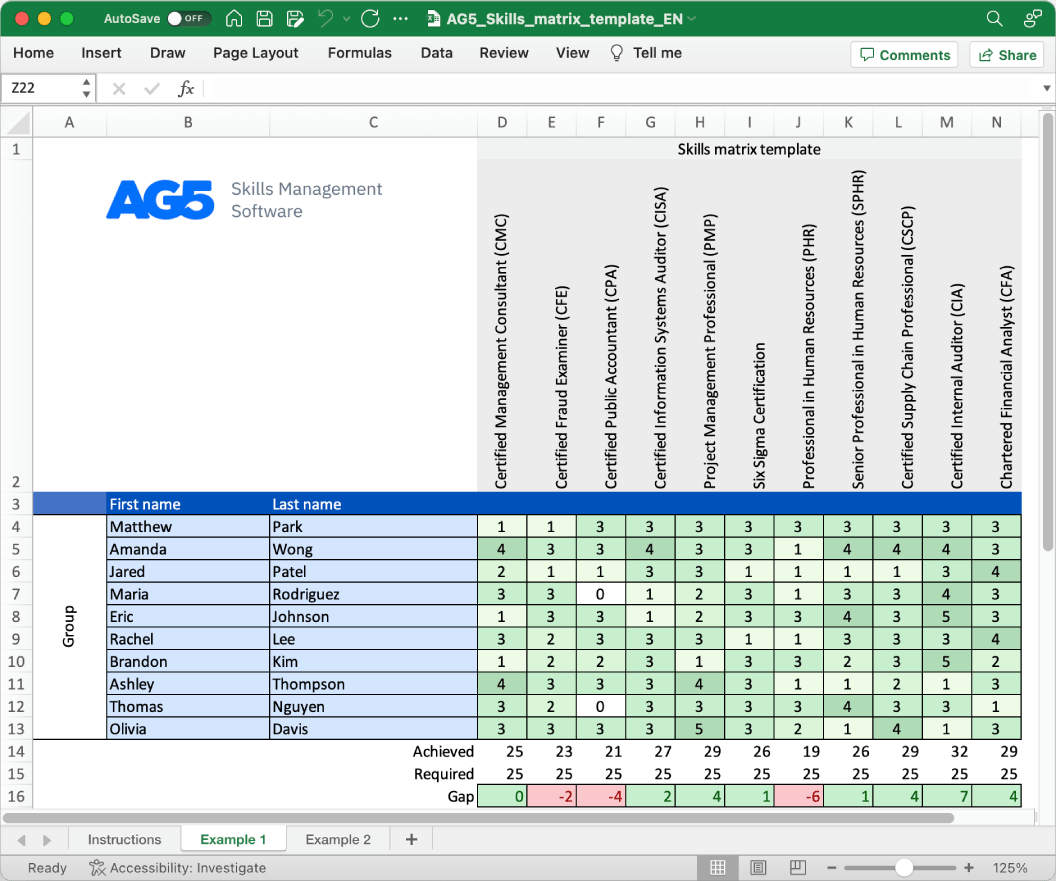Quality risk management (QRM) skills matrix template
A skills matrix template is a tool teams can use to effectively manage and assess their QRM skills and knowledge.
Download your free template here

Overview Copied
With our free QRM skills matrix template, you will receive a clear overview of the skills that are present in your organization, as well as those that are missing. Using this information, you can develop and implement a plan to ensure that your employees’ skills are up to date, comprehensive, compliant, and ready for the future.
- Certified Quality Risk Management Professional (CQRMP)
- Certified QRM Specialist (CQRMS)
- Certified QRM Analyst (CQRMA)
- Certified QRM Consultant (CQRM)
- Certified QRM Trainer (CQRT)
- Certified QRM Expert (CQRE)
- Certified QRM Process Engineer (CQRPE)
- Certified QRM Project Manager (CQRPM)
- Certified QRM Team Leader (CQRTL)
- Certified QRM Implementation Specialist (CQRMIS)
- Certified QRM Auditor (CQRMA)
- Certified QRM Documentation Specialist (CQRMDS)
- Certified QRM Risk Analyst (CQRMRA)
- Certified QRM Quality Assurance Manager (CQRMQAM)
- Certified QRM Change Control Specialist (CQRMCCS)
- Certified QRM Regulatory Affairs Specialist (CQRMRAS)
- Certified QRM Performance Metrics Analyst (CQRMPMA)
- Certified QRM Validation Engineer (CQRMVE)
- Certified QRM Compliance Specialist (CQRMCS)
- Certified QRM System Administrator (CQRMSA)
Benefits Copied
Skills management software is important in QRM as it helps organizations assess and manage the skills of personnel responsible for implementing QRM principles, ensuring they possess the necessary expertise to identify, evaluate, and control risks throughout the product lifecycle, improving decision-making and overall quality management.
Author Copied
Revisions Copied
Tired of managing skills in Excel?
Say goodbye to Excel matrices. Start using AG5’s plug and play skill matrix software.
Recognized by G2 for Excellence in Skills Management

